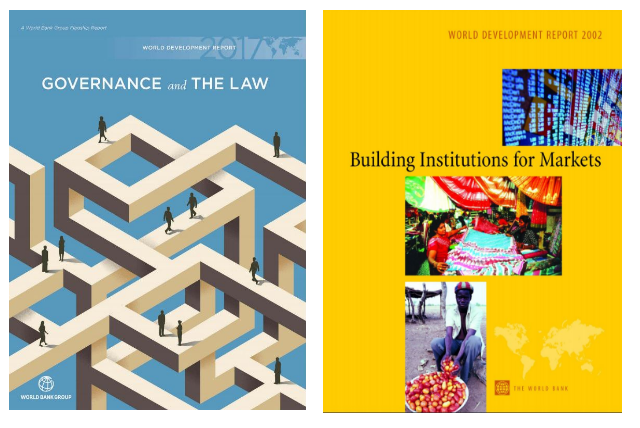
Editor’s note: This is the second installment of a two-part series. You can read part-one here. The findings, interpretations and conclusions expressed herein are those of the authors and do not necessarily reflect the view of the World Bank Group, its Board of Directors or the governments they represent.
The
Word Development Report 2017 on Governance and the Law rightly frames law in social terms – “but one of many rule systems” – and instrumental terms – “an important tool in the policy arena… in shaping behavior, in ordering power, and in providing a tool for contestation.”
In my view, the analysis of law missed a crucial opportunity by shying away from ‘looking under the hood,’ so to speak, and engaging the content of legal norms and protections more purely on their own, distinct terms (e.g. in the way the WDR 2002 examined competition or bankruptcy law as part of a market-focused analysis). To illustrate, these two sets of public law protections in particular would have bolstered WDR 2017’s analysis of both law and governance:
- Procedural Guarantees & the Power of Boring. Well-functioning public laws and institutions underlie both the delivery of many development goals and the enjoyment of basic rights. Administrative laws and processes, in particular, provide many ‘rules of the game,’ for “ordering power and providing a tool for contestation” that the WDR speaks about. Important debates arise in public law over what procedural guarantees (e.g. related to participation and consultation) and outcomes are reasonable in respect to particular public acts and decisions, given the interests and rights of affected parties at stake. Where to set the limits on the use of public discretion, so as both to empower public officials with the flexibility needed to address fundamental challenges of populations, while also guarding against arbitrary use of power emerges as a core concern. Decisions around expropriation of lands for public use, for instance, crystallise the possible tensions arising here with sharp clarity. When the right balance is struck and the associated processes work well, they go largely unseen, and the contentious turns into the boring, humdrum of everyday administrative life.
- Equality, Dignity and Rights. Concerns about reasonable decision-making processes and outcomes are essentially about equality in the application of the law – a core component of the rule of law. Further, the law, legal protections provide valuable frameworks for unpacking and mediating many of the clashes or competing claims to limited resources that characterise the different forms of inequality that the WDR 2017 so helpfully highlights throughout. At a deeper level, equality protections, especially as enshrined under national constitutions and human rights laws, are rooted in notions of human dignity, as are all human rights. The WDR mentions dignity in only one place, in respect to the desire to restore dignity that underlies various truth and reconciliation mechanisms and as a factor that triggered the Arab Spring. Yet the desire for dignity, more than simply a desire for improved material conditions, I would argue, drives the quest for better development of populations around the world. Adopting more of a rights framing, in this sense, could have helped the WDR 2017 show how a commitment to governance and the law, when taken at their full worth, could serve to shift or reframe basic understandings about development’s purpose.


Join the Conversation